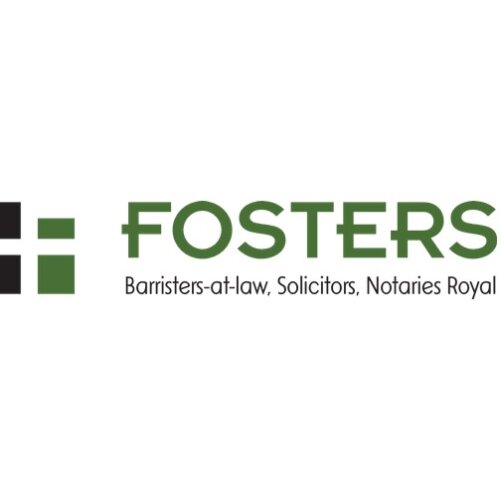Best Renewable & Alternative Energy Lawyers in Castries
Share your needs with us, get contacted by law firms.
Free. Takes 2 min.
List of the best lawyers in Castries, Saint Lucia
About Renewable & Alternative Energy Law in Castries, Saint Lucia
Renewable and alternative energy is an emerging and vital sector in Castries, Saint Lucia. With a focus on reducing dependence on fossil fuels and embracing sustainable development, the government and private sector are investing more resources in solar, wind, geothermal, and other renewable sources. Laws and policies in this field aim to encourage green investments, protect the environment, and ensure fair access to energy resources. Legal structures are evolving to support new ventures and to provide clarity on ownership, licensing, and regulation of renewable energy systems.
Why You May Need a Lawyer
There are several situations where legal expertise is necessary in the field of renewable and alternative energy in Castries. These can include navigating the licensing or permitting process for starting a solar or wind project, understanding zoning regulations for energy installations, negotiating power purchase agreements, securing financing for renewable projects, complying with environmental standards, and resolving disputes with suppliers or government agencies. A lawyer can also provide valuable guidance on regulatory compliance, intellectual property rights for new technologies, and contracts with installers or utility companies.
Local Laws Overview
Saint Lucia has developed legal frameworks to foster growth in renewable and alternative energy. The primary laws affecting this sector include the Electricity Supply Act and its amendments, which regulate how electricity is generated, transmitted, and distributed. The National Utilities Regulatory Commission (NURC) oversees energy providers and ensures adherence to energy standards. The government has adopted policies that support net metering, encourage private investment, and set tariffs for renewable energy generation. Environmental protection laws, including requirements for environmental impact assessments, also play a vital role in the planning and operation of energy projects in and around Castries. It is crucial for investors, homeowners, and businesses to understand these local regulations when considering renewable energy solutions.
Frequently Asked Questions
What types of renewable energy are commonly used in Castries, Saint Lucia?
Solar energy is the most widely used renewable source, with increasing interest in wind and geothermal options. The regulatory environment encourages exploration of these and other alternatives.
Do I need a license to install a solar panel system on my property?
Depending on the size and intended use of the system, you may need approval from local authorities. Larger installations for commercial use often require permits and compliance with safety and grid connection standards.
Can homeowners sell excess electricity back to the grid?
Saint Lucia supports net metering, which allows qualified customers to feed surplus electricity back into the grid, offsetting their energy bills. Specific requirements must be met and approval is necessary.
What is the role of the National Utilities Regulatory Commission?
The NURC regulates the electricity sector, sets standards, reviews tariffs, and ensures fairness and safety for consumers and energy providers alike.
Are there incentives for investing in renewable energy in Castries?
Yes, the government offers incentives, such as duty waivers on renewable energy equipment and tax concessions, to promote clean energy investment.
What environmental regulations apply to renewable energy projects?
Projects, especially larger ones, may require environmental impact assessments and must comply with national environmental laws to protect natural resources.
How do I resolve a dispute with a utility company or installer?
Legal avenues are available, including formal complaints to the NURC and civil litigation, if necessary. Mediation and negotiation are also commonly used methods for dispute resolution.
Is it legal for foreign investors to participate in the renewable energy sector?
Yes, foreign investment is allowed and encouraged, but there may be specific regulations and processes for foreign ownership, licensing, and repatriation of profits.
What contracts are important for renewable energy projects?
Key contracts include power purchase agreements, installation and maintenance contracts, land leases, and financing agreements. Legal review is essential to protect your interests.
How can a lawyer assist with my renewable energy project?
A lawyer can guide you through compliance, draft and review contracts, secure permits, manage negotiations, and represent your interests in regulatory or legal proceedings.
Additional Resources
For more information and assistance related to renewable and alternative energy in Castries, you may contact the following organizations and governmental bodies:
- National Utilities Regulatory Commission (NURC) - oversees the regulation of utilities, including renewable energy.
- Ministry of Infrastructure, Ports, Transport, Physical Development and Urban Renewal - responsible for energy policy and infrastructure.
- St Lucia Electricity Services Limited (LUCELEC) - main electricity provider, manages grid connection for renewables.
- Sustainable Development and Environment Division - responsible for environmental approval and impact assessments.
- St Lucia Chamber of Commerce, Industry and Agriculture - provides information and networking opportunities for investors and entrepreneurs.
Next Steps
If you require legal assistance in renewable and alternative energy in Castries, consider the following steps:
- Identify the specific nature of your legal issue or project, such as installation, investment, or dispute resolution.
- Gather relevant documents, including contracts, permits, and correspondence with regulatory bodies or partners.
- Consult with a lawyer experienced in energy law, environmental law, and commercial contracts related to energy projects.
- Be prepared to discuss your goals, concerns, and any deadlines that may affect your rights or obligations.
- Maintain communication with relevant government agencies or organizations as advised by your legal counsel.
Taking these steps can help ensure your renewable or alternative energy project is legally compliant and poised for success.
Lawzana helps you find the best lawyers and law firms in Castries through a curated and pre-screened list of qualified legal professionals. Our platform offers rankings and detailed profiles of attorneys and law firms, allowing you to compare based on practice areas, including Renewable & Alternative Energy, experience, and client feedback.
Each profile includes a description of the firm's areas of practice, client reviews, team members and partners, year of establishment, spoken languages, office locations, contact information, social media presence, and any published articles or resources. Most firms on our platform speak English and are experienced in both local and international legal matters.
Get a quote from top-rated law firms in Castries, Saint Lucia — quickly, securely, and without unnecessary hassle.
Disclaimer:
The information provided on this page is for general informational purposes only and does not constitute legal advice. While we strive to ensure the accuracy and relevance of the content, legal information may change over time, and interpretations of the law can vary. You should always consult with a qualified legal professional for advice specific to your situation.
We disclaim all liability for actions taken or not taken based on the content of this page. If you believe any information is incorrect or outdated, please contact us, and we will review and update it where appropriate.










